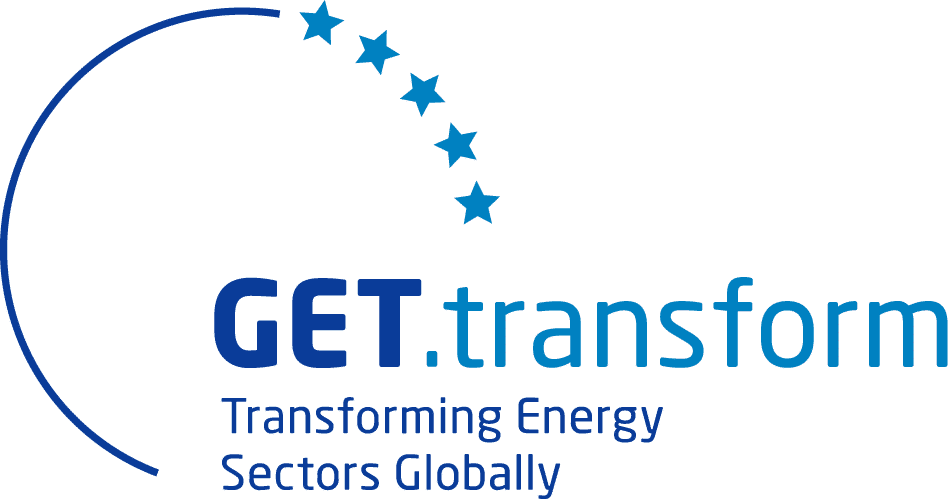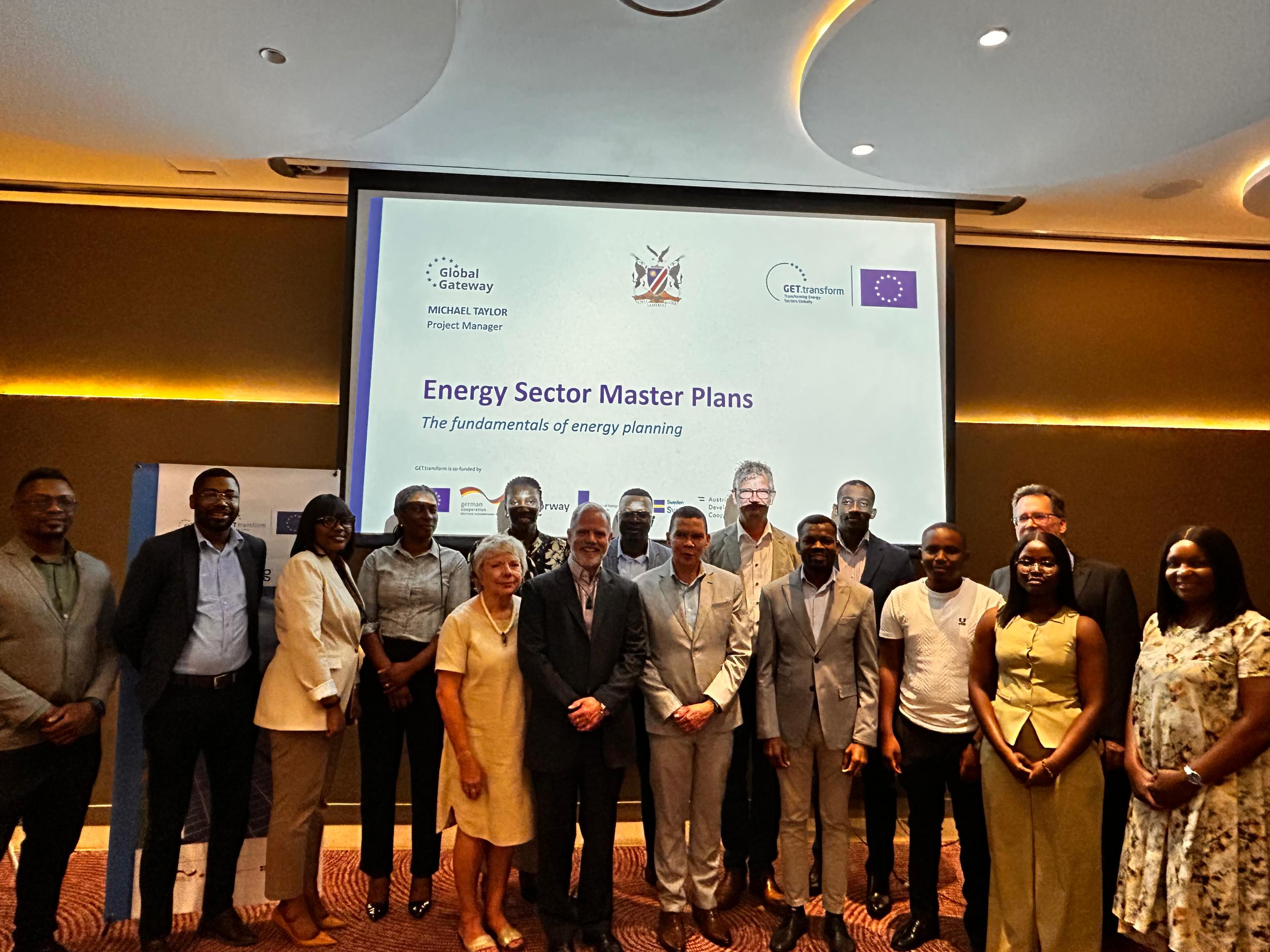Namibia’s Ministry of Industries, Mines and Energy (MIME) successfully convened a high-level, two-day series of engagements to formally advance the development of the country’s Energy Masterplan.
The event was structured across different stakeholder groups. Day one focused on the Steering Committee of the Energy Master Plan, providing a platform for strategic oversight and technical briefing. Day two, on the other hand, was dedicated to the focal persons of the Multisectoral Working Group, which included representatives from relevant institutions, ministries, and key industry bodies.
The EU-GET.transform Namibia Country Window, through its support to the Namibian Government and in the frame of the EU’s Global Gateway initiative, contributed vital technical expertise to the inception process. The team of expert consultants, Michael Taylor and Ludger Eltrop, delivered in-depth presentations to the Steering Committee.
Key sessions included an overview of the fundamentals and best practices of long-term energy planning and a technical presentation on the TIMES Namibia model, a sophisticated energy systems model designed to support strategic policy decisions and avoid long-term infrastructure lock-ins.
A core message emerging from the inception meetings was the crucial importance of national ownership throughout the Energy Master Plan process. Stakeholder representatives across both days highlighted the fundamental need for active, sustained participation from all sectors.
Furthermore, the attendees strongly affirmed the role of capacity building through knowledge exchange. This is deemed essential to ensure that all relevant institutions and personnel are technically equipped to effectively implement the long-term outcomes and policy recommendations generated by the masterplan.
Following the successful kick-off meetings, the partners will now compile a comprehensive inception report and outline the initial scenario framing policy documents and baseline input requirements. The plan is expected to be finalised by end of next year.


